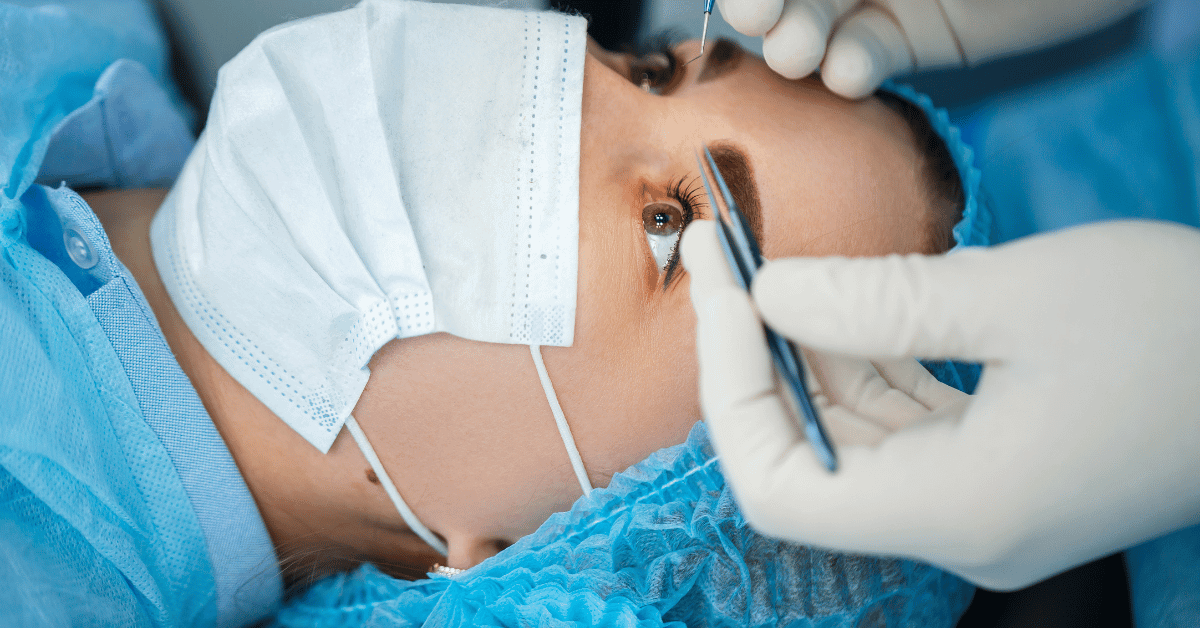The dramatic changes brought about by lasers have had a significant impact on ophthalmology, as they have on many other fields of modern medicine. The use of lasers in eye therapies has revolutionized vision correction and the treatment of significant eye disorders. These operations are now more accurate, less intrusive, and extremely effective. A new age of cutting-edge treatment approaches has begun with the revolutionary use of lasers in ophthalmology, which has radically changed the way eye care is approached.
Introducing Ophthalmic Lasers: A Wonder of Modern Medicine
Ophthalmologists have grown to rely heavily on lasers in the last several decades. Because of the precise and controlled energy that lasers deliver, it is now possible to perform delicate treatments with little harm to surrounding tissues. Lasers have many uses in the field of eye care, and this article explores those uses to show how effective they are for treating various eye problems.
Ophthalmic Lasers: A Variety of Options
Nd:YAG Laser
One technique that helps patients see again following cataract surgery is posterior capsulotomy, which makes use of the Neodymium-doped Yttrium Aluminum Garnet (Nd: YAG) laser. If the posterior capsule is cloudy, this laser can make a tiny hole in it so light can go through and clear your eyesight.
Excimer Laser:
The term “excimer laser” is almost interchangeable with “laser vision correction” techniques such as PRK and LASIK. For correcting nearsightedness, farsightedness, and astigmatism, as well as reshaping the cornea, it is a preferred choice due to its accuracy in removing corneal tissue.
Argon Laser:
Medical professionals frequently use the Argon laser to treat retinal disorders, such as diabetic retinopathy and retinal tears. Its targeted heat energy helps mend torn retinas and close off bleeding blood vessels, protecting the retina from more harm.
Femtosecond Laser:
The femtosecond laser, which uses extremely short pulse durations, has transformed procedures like eye cataract removal and flap generation in LASIK surgery. The low influence on surrounding tissues and remarkable precision of this procedure have led to speedier healing times and better overall results.
Improving Clarity with Laser Vision Correction
Vision correction with LASIK:
Laser-Assisted in Situ Keratomileusis, more commonly known as LASIK, has revolutionized the way people repair their eyesight.
The excimer laser successfully corrects refractive defects by reshaping the cornea’s curvature through the use of a tiny corneal flap created by the femtosecond laser.
Surgery for PTK:
PTK, or photorefractive keratectomy, was an alternative to LASIK that directly reshaped the cornea. If you have thinner corneas or aren’t a good candidate for LASIK, PRK is a good alternative that takes a little longer to recover from.
Also Read: Squint Eye: Treatment Options and Risks for Adults
Use of Lasers in the Treatment of Eye Diseases
Diabetic Eye Diseases:
A loss of eyesight can occur as a result of diabetic retinopathy, a consequence of diabetes. Focused photocoagulation is a laser treatment that can reduce leakage from aberrant blood vessels while preserving eyesight.
Detachments and Tears in the Retina
Retinal tears are effectively treated with laser photocoagulation, which creates scars that attach the retina to the underlying tissue. Retinal detachment is a potentially blinding and life-threatening disorder; this safeguards against it.
Management of Glaucoma: Reducing Intraocular Pressure
By increasing the outflow of aqueous humor from the eye, laser operations such as selective laser trabeculoplasty (SLT) aid in the management of glaucoma. This, in turn, reduces intraocular pressure and prevents damage to the optic nerve.
Improve Your Vision with Laser Treatment for Cataracts
When a patient’s natural lens becomes cloudy due to cataracts, an intraocular lens (IOL) is used to replace it. With the help of the femtosecond laser, exact incisions may be made to install intraocular lenses (IOLs), which improves eyesight and decreases the need for corrective lenses.
Laser Technology: A Step Into the Future
Ophthalmic lasers adapt to new technology that comes out. The future of eye care looks bright, with exciting innovations like adaptive optics that improve laser accuracy and individualized therapies based on wavefront analysis.
Although ophthalmic lasers have many advantages, it is important to be aware of the hazards that come with them, including the possibility of infection, overcorrection, or under-correction. Choosing a qualified ophthalmologist can greatly reduce these dangers.
Examining the Pros and Cons of Laser Eye Surgery:
Laser eye surgeries have many advantages, such as a shorter recovery time, less discomfort, and less need for corrective lenses. It is important to note that lasers can’t treat every eye problem and that each patient’s appropriateness should be evaluated specifically.
A Look at Lasers Through the Lens of Eye Aesthetics:
Cosmetic uses for lasers include removing eyelid tattoos or smoothing up wrinkles around the eyes, in addition to their medicinal uses. Only trained experts should attempt to accomplish these procedures due to the extreme precision required.
The Gentle Art of Ophthalmic Laser Surgery (Laser on Eye):
Although lasers offer new solutions, the knowledge and skills of ophthalmologists are still paramount. A comprehensive strategy for eye health is achieved through patient consultations, individualized treatment programs, and caring services.
Conclusion
Lasers have opened up new opportunities in the field of eye treatment. Ophthalmic lasers have revolutionized the treatment of eye diseases and vision correction due to their accuracy, safety, and efficacy.
Laser operations do not cause any pain. Most people feel very little pain during laser operations. The patient will be comfortable throughout the treatment with the help of anesthetic eye drops.
Are lasers able to cure every kind of eye disease? Illnesses affecting the eyes can be effectively treated with lasers, although this is not always the case. If you want to know what to do for treatment, you should see an ophthalmologist at Deevine Eye Care, an esteemed Eye Clinic in Ghatkopar, Mumbai.

